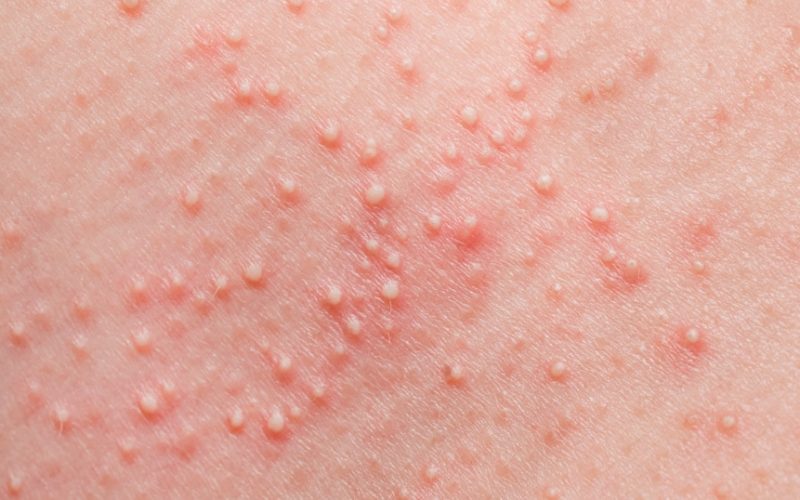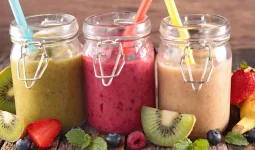Gluten allergy or sensitivity is a common problem affecting millions worldwide. Due to the increasing number of gluten cases, food labels have to indicate whether they contain gluten or not.
Gluten is actually a protein found in wheat, rye, and barley. Wheat is used in making bread, pasta, and cereals. Wheat is also used in making salad dressings and soups.
Barley is used in making beers and food containing malt. Rye is also found in some cereals, beer, and rye bread. All these foods mentioned (wheat, barley, and rye) are common foods and they have always been consumed since the beginning of human life.
Right now, Wheat has been listed as the 8th top allergens in the world. What wheat allergy does is to trigger an immune response to any of the protein present in wheat. This is not limited to gluten alone but it includes it.
Children are the most affected but most of them outgrow it by the age of 12. It is also important to note that gluten allergy shares the same symptoms with Celiac disease and non-Celiac gluten sensitivity.
Symptoms of Gluten Allergy
Common symptoms are:
- Difficulty breathing
- Eye irritation
- Nasal congestion
- Rash and hives
- Inflammation of the throat and mouth
- Diarrhea
- Nausea and vomiting
You might feel these symptoms immediately after consuming the wheat or a few minutes after. Some experience them a few hours after consumption.
The severity of these symptoms varies from person to person. It ranges from mild to life-threatening such as anaphylaxis (severe difficulty in breathing).
Celiac Disease And Its Symptoms
Celiac disease is an autoimmune disorder and it is characterized by an abnormal response of your immune system to gluten. This can make your immune system destroy your villi (the fingerlike part of your small intestines that absorb nutrients).
You will be at risk of malnutrition if your villi are not healthy. There are also more serious consequences of Celiac disease like permanent intestinal damage.
Celiac disease is often confused with a gluten allergy and both children and adults are affected. Another interesting part about this condition is that individuals have different symptoms, so only a test can help you know if you have this or not.
The common symptom in children with Celiac disease is digestive problems. Some of the symptoms of digestive problem are:
- Nausea and vomiting
- Stomach pain
- Pale stool with a foul smell
- Constipation
- Chronic diarrhea
- Gas and abdominal bloating
Celiac disease can affect the ability of children to absorb nutrients and they need nutrients more in these critical years of their life.
This can hinder their growth and development and cause other problems like:
- Enamel defects
- Weight loss
- Irritability and severe mood swings
- Short stature
- Delayed puberty in adolescents
- Inability to thrive in infants
Adults too can experience digestive problems but there are more likely to experience some of these:
- A tingling sensation in the hands and feet
- Abnormal menstruation like missed or stopped period
- Frequent miscarriages and infertility
- Canker sores inside the mouth
- Headaches and joint pains
- Osteoporosis
- Depression and anxiety
- Anemia
- Fatigue
It is quite difficult to recognize this as Celiac disease because it shares these symptoms with other chronic diseases. Only a medical test can let you know if you have this condition.
Non-Celiac Gluten Sensitivity
There is also a medical condition similar to gluten allergy it causes the same symptoms in people who don’t have celiac disease and they are also not allergic to wheat.
While research is still ongoing to ascertain the cause, some scientists and health experts think it’s the poisons used in farming that is causing this.
For now, no test can diagnose this condition. It is only diagnosed in people who show symptoms after consuming gluten but test negative to celiac disease and wheat allergy.
They came up with this term “Non-celiac gluten sensitivity” (NCGS) as more and more people keep on reporting unpleasant symptoms after consuming gluten.
Aside the symptoms of wheat allergy, NCGS also causes:
- Headaches
- Abdominal pains
- Gas and bloating
- Mental fatigue or brain fog
Home Remedies for Gluten Allergy
Gluten-free diet
The first home remedy for gluten intolerance is to avoid foods containing gluten. Gluten is added as space-filling material or additional bulk to a lot of food items.
It is present in most breads and grain products. You can also find it in imitation meat, soy sauce, baked goods and deserts, ketchups, ice cream, and a lot more processed foods.
Gluten is used as a stabilizing agent for mashed potatoes. You have to scrutinize your food labels very well before purchase. When at a restaurant, ask for gluten-free menu.
These tips will help you eliminate gluten from your diet. Natural foods like fruits, vegetables, and organic meats are safer. The rule to keep at the back of your mind is that: the more processed (unnatural a food is, the more likely it contains gluten).
Other natural remedies you can try are:
Ginger
This wonderful herb has many healing properties. It kills germs, relieves nausea, and relieves gas and bloating. Take ginger tea several times daily to overcome the symptoms of gluten intolerance.
Horsetail Tea
One powerful herb that reduces the inflammation of the digestive tract and intestines is Horsetail. It increases the strength and durability of your immune system.
This herb makes your system less sensitive to gluten. It can be taken in the form of tea or capsules.
Turmeric
This is a powerful anti-inflammatory herb that is used in treating a lot of health conditions. It hastens healing and soothes the digestive system. Many cups of turmeric tea daily will help you.
Papain
Papain supplement helps the enzymes in your small intestines identify gluten and handle it thereby reducing the immune response. You can get this supplement in most health shops.
It is common among people who want to avoid the symptoms of gluten intolerance but don’t want to change their diet or check their gluten intake.
However, some people still report mild symptoms of gluten allergy when taking this supplement. This means a total change of diet and avoiding gluten is still the key.
Omega-3
Take omega-3 supplements in the form of DHA. It has a strong anti-inflammatory response and hastens healing.
Aloe vera
Take aloe vera gel orally to treat inflammation of the intestine. Aloe vera gel can be gotten from a health store and take according to prescription.
It will soothe your stomach lining and help reduce the severity of the symptoms. It also relieves constipation because it is a mild laxative.
Apple cider vinegar
It relieves a lot of stomach problems including gluten intolerance. It contains many enzymes and aid digestion, it fights constipation, inflammation, and encourages the growth of good bacteria.
Add a tablespoon to a cup of water and drink.
Nutrient supplement
Vitamin and mineral supplements help people with gluten intolerance suffering from nutritional deficiencies. Nutrient supplements that can be of great help are zinc, B12, vitamin K, iron, calcium, and get regular exposure to sunlight.
These supplements are usually given intravenously so that the intestinal tract won’t be damaged further.
L-Glutamine
You should always have this with you if you have a gluten intolerance, especially if it comes with diarrhea. This nutrient helps build your intestines. It also repairs it.
Also, it is the most abundant amino acid found in your bloodstream. Take this if you accidentally ingest gluten.
Plain water
Clean water helps your cells function properly. It helps the body detox and expel wastes products and pathogens. Water can also reduce the symptom of gluten intolerance.
Plain water also helps people feel healthy and energetic. Drinking lots of water after gluten ingestion is known as “flush” and it will help your body expel gluten.
It also boosts hemostasis.
Marshmallow root
This is one of the top home remedies for digestive issues in traditional medicine. It repairs the gut lining and reduces gas, inflammation, and other symptoms.
Fish oil
This coats the lining of your intestines thereby protecting it from inflammation. It also prevents painful flare-up if gluten is accidentally consumed.
Fish oil supplement can be gotten from a good health store. Take it according to the prescription on the label.
Activated charcoal
It absorbs ingested poisons and also relieves bloating and gas. Take a teaspoon of this in a glass of warm water when you feel the symptoms of gluten intolerance.
Olive leaf extract
Live leaf extract and goldenseal are used in natural medicine to treat celiac disease. They regulate immune response and protect your digestive system.
Digestive enzymes
This powerful remedy for gluten ingestion provides instant relief from gas and bloating. They also hasten the elimination of gluten from the body.
They also do wonders for constipation.
Yogurt
Though the majority of people suffer from lactose intolerance, yogurt can be helpful if you don’t. It contains healthy bacteria that promote the healing of your digestive tract.
So, regular intake of yogurt can help relieve the symptoms of gluten intolerance. This also can be of great help to people who don’t know they’ve had celiac disease for years or people whose intestinal villi are badly damaged.
It will also benefit people with poor absorption.
Fasting
Going on a fast after ingesting gluten helps people greatly. This will help give your digestive system a break and help the body focus wholly on detoxification.
In fact, in severe cases of gluten intolerance, fasting comes naturally, lol.
Chamomile
This sweet herb relieves digestive inflammation and reduces the symptoms of an upset stomach. Drink this tea several times daily until you recover.
How to Handle Constipation and Diarrhea When Having Gluten Intolerance
Diarrhea
If you have diarrhea and want to tighten up fast, take activated charcoal and L-glutamine. It will help you tone up fast because the side effects of these two are constipation.
You can also try eating rice and apples, they are natural agents of constipation.
Constipation
If you have constipation and need to loosen up fast, take apple cider vinegar and digestive enzymes. Their side effects are diarrhea. You can also eat these foods to gain relief, oranges, papaya, and prunes.
If the constipation is severe, take fennel seeds because it is a powerful laxative.
Sources;
1. Natural Remedies; BMJ , WOL,





